Hi everyone,
I’m sitting here in a budget airbnb in Milan sipping on Nespresso from a pod, feeling pretty tired to be transparent. I have now been traveling and baking on and off for close to 3 months.
As I continue this journey there are times when I miss the comforts of home, whether that be Texas or New York. I try to do small things like listen to old country music or put on an early episode of Sex and the City. That grounds me, alright.
One thing that is always a comfort: cinnamon buns. This is why I began making them in the first place. I made some for the bakers here at Panificio Davide Longoni, the bakery in Milan where I’m staging this week. More on this below.
When I was a kid I used to eat the Little Debbie version, the 6-pack “spinwheels". Yes, they’re deeply processed and some would even say gross. At age 7 or 8 I was very precise with my preparation of these. I’d open the plastic wrap about an inch on one side for ventilation and slip the whole thing into the microwave. Nuke for 20 seconds. Then I’d eat them one by one on a stool in our old wood-paneled kitchen. It was my heaven.
I have a few early memories with food that I’ll never forget, and this is one of them. Maybe it’s because this was my first time having a moment to myself with food. My first time not being fed, but feeding myself. So when I started Apt. 2 Bread I started making them a-la-Little Debbie, but way better, and naturally leavened. These really come from the heart. And inspired by recent travels and education, I’ll test a more whole-grain version when I get back to New York.
As promised I’m sharing a recipe to paid subscribers with each publication, and today that recipe is the Apt. 2 Bread cinnamon buns. Yeeee! Keep a look out for a separate email. And if you want access to this gem of a recipe, please consider becoming a paid subscriber :-)
———
Since I last wrote I have had many experiences. I have met so many wonderful people who live with a lot of passion for their crafts - farming, milling, baking, making art, organizing. People who have been so warm to me and who I now call friends.
Specifically, I spent two weeks at a beautiful grain farm called Vild Hvede (Wild Wheat) near Odense, Denmark followed by one week in Copenhagen staging at Lille Bakery. Both were nothing short of a dream. Vild Hvede is one of the few places where you can see the soil-to-bread process, as they grow grains, harvest, mill, and bake onsite. A true wonder. And at Lille Bakery, I found that they operate less like a standard bakery and more like a farm. Ingredients are either used or preserved, very little is wasted, and they’re in cycle with the seasons. It was especially sweet for me because the bakers at Lille use many flours from Vild Hvede, and they know each other. In fact many of these people run in the same circle, a group I grew to know (in the span of one week) as true advocates for a better food system.
A few main takeaways from my time in Denmark:
The majority of food grown in Denmark is used for animal feed. People have started to mobilize towards increasing the growth of food for human consumption. The climate is fantastic for really any kind of growing — the farm at Vild Hvede confirmed that for me. I have never seen gardens so lush, cows so happy. And the color and taste of the grains! I mean, they have purple and blue wheat. Actually purple and blue. And young people are really passionate about this movement in general, which is super inspiring to me. I’m not seeing this in New York, but I’m probably not looking in the right places (I’m not yet involved in nearby farms or in touch with many people practicing mindful cycles with the earth, aside from my dear friend Maya, a farmer).
Another thing I noticed during my time in Denmark is how businesses operate in a co-operative fashion. I am pretty obsessed with the topic of how to make a business work in a balanced way that allows for workers to be fulfilled and well-paid, keeps the doors open, and doesn’t kill the owner. Here’s one angle I observed … everyone makes the same wage. Everyone shares the tasks, with some slight delegation based on the position. I mean, when you think about it its pretty radical. I understand there are pros and cons here, but I am so tired of the traditional hierarchy in bakeries and restaurants. Many are kept below their potential and exploited financially and creatively. And though owners mean no malice… it’s just the way it is. Most people don’t feel a sense of intention or ownership at work because there’s no space for it. If you are simply going to your job, clocking in, shlepping through the day without care, then you are giving into the system at large that is taking advantage of your time and your body. If you live in New York City then you know this to be true — you can see it in most faces on the subway. I have also been this person, many times. Sometimes it’s even a relief to be this person, I understand that too. And of course, many people have no other choice and are simply trying to survive. Or — although rare I think — maybe you enjoy your position and take a lot of pride in it, and if so, bravo, this is really the goal in my opinion.
But I want to stand by this: we are all blessed with this one life. How can we create a more even landscape at work, one that doesn’t box people in? How can we shift away from profit as the main focus and encourage ownership, expression, collaboration, education? If we swayed more to the center we could create a more harmonized workplace for everyone involved.
I know it’s also difficult for business owners, who on top of everything else have been forced to take on a thousand responsibilities and costs, such as providing healthcare for their workers when it should be a basic human right, or who need to answer to the bank or investors.
I don’t know the answer. I turn it over in my mind daily. But what I saw in Copenhagen gave me some hope.
This topic feels very personal to me. If you ever want to talk about this I am always interested in having this conversation.
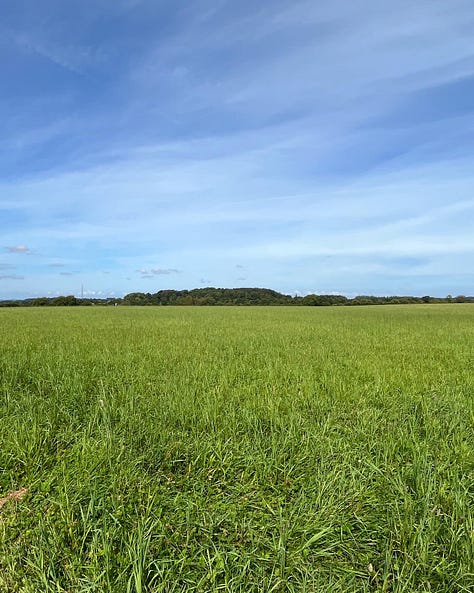
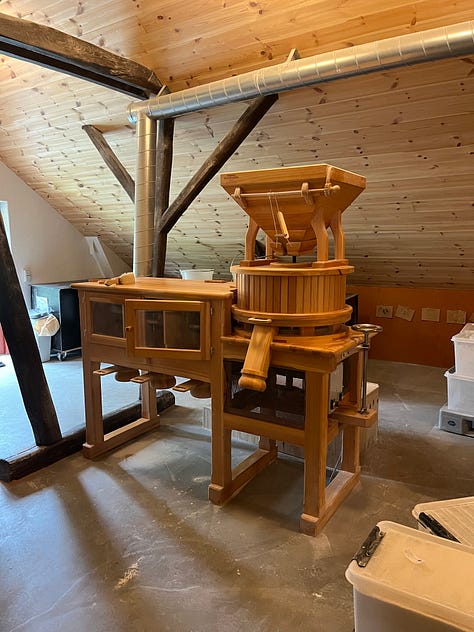
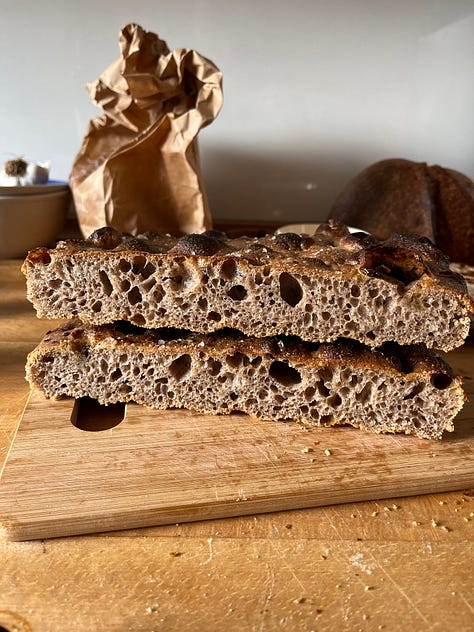
———
As noted this week I am staging at Panificio Davide Longoni in Milan, courtesy of my friend Carmine Savelli. It is a huge operation with multiple locations, reminding me fondly of my days at She Wolf Bakery in Brooklyn. They make a lot of bread. I am also learning how to make beautiful pizza with one of their bakers, Luca Riboldi. Luca is so young yet so talented!
In addition to working in the lab for the week I am also doing a michetta sandwich popup with Milan-based Chef Ester Azzola. Michettas were created during Austrian rule over Milan in the 1700s. This bread, a small and crunchy roll that resembles the shape of a rose, has a hollow interior, perfect for filling.
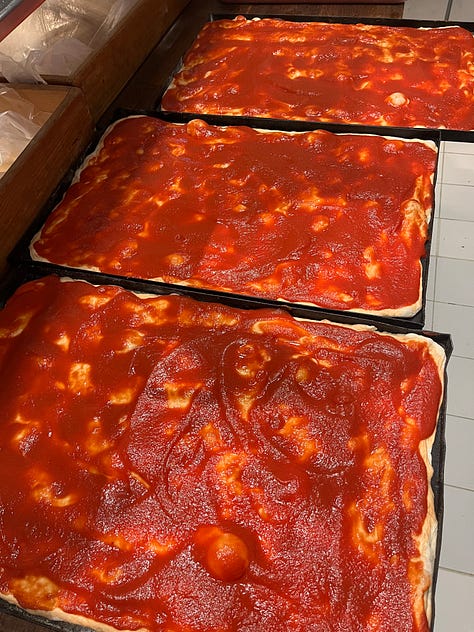
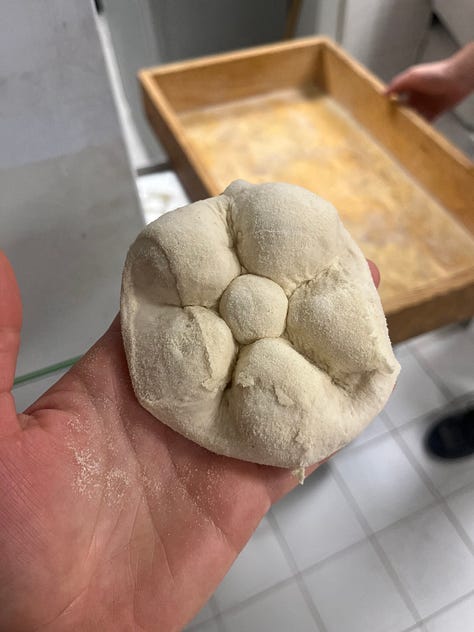
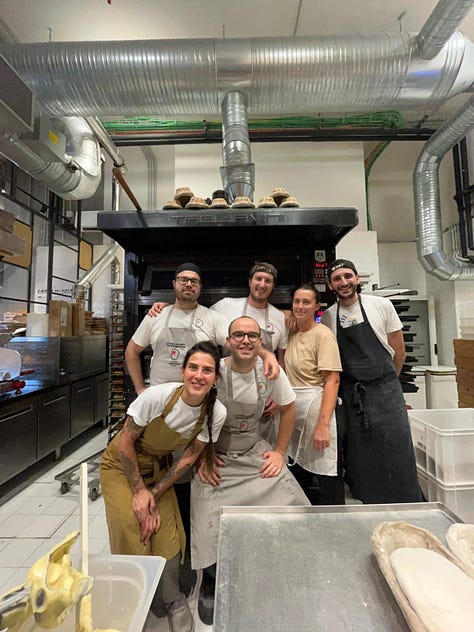
———
And so, there is a bit of a paradox here that you’ve probably picked up on. One that ties this passage together, really. You’ll find that I respect traditions in food — such as sugary cinnamon buns of past and present or michettas made with super white flour. Yet at the same time, I find it important to advocate for improved food systems, accessibility to fresh foods, whole grains, and a better way of life in both consumption and work. But I grew up in a barbecue restaurant. You know, one that inevitably supports the meat industry in the US, among other things. And I still have a lot of pride in my family’s restaurant. Can all coexist?
Does anyone else ask these questions?
I’ll be back in New York in two weeks and have some plans brewing.
Excited to be home and bake for you all again.
Until then,
Carla


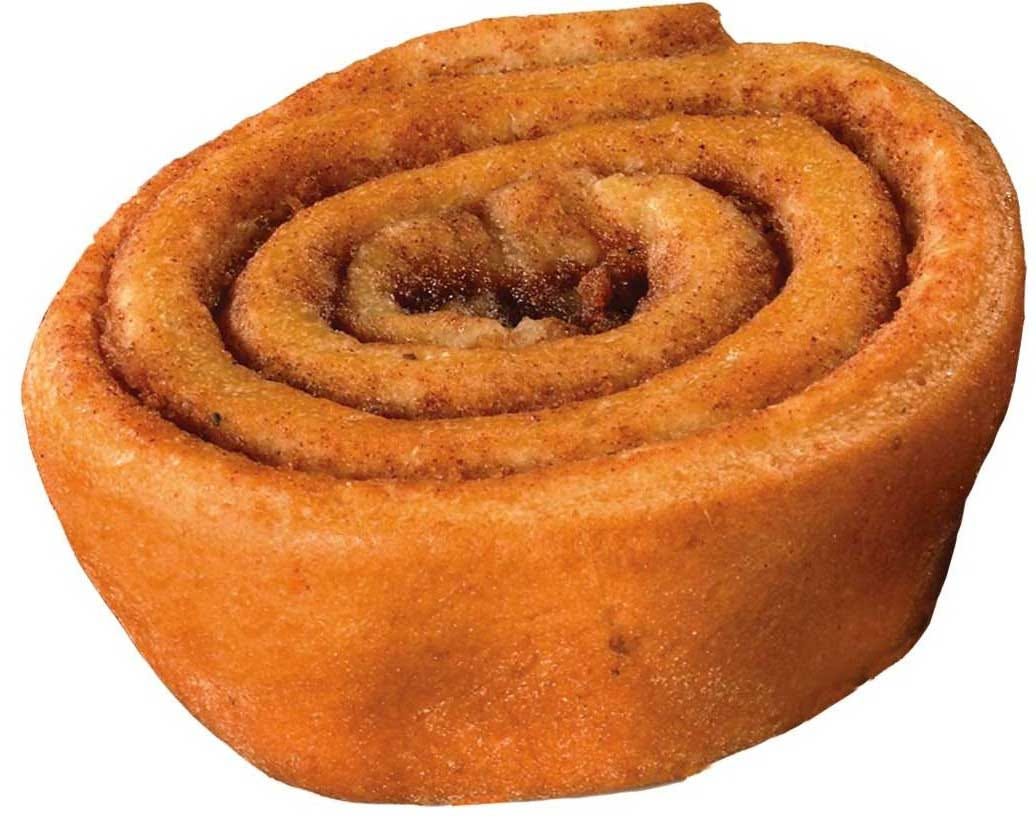
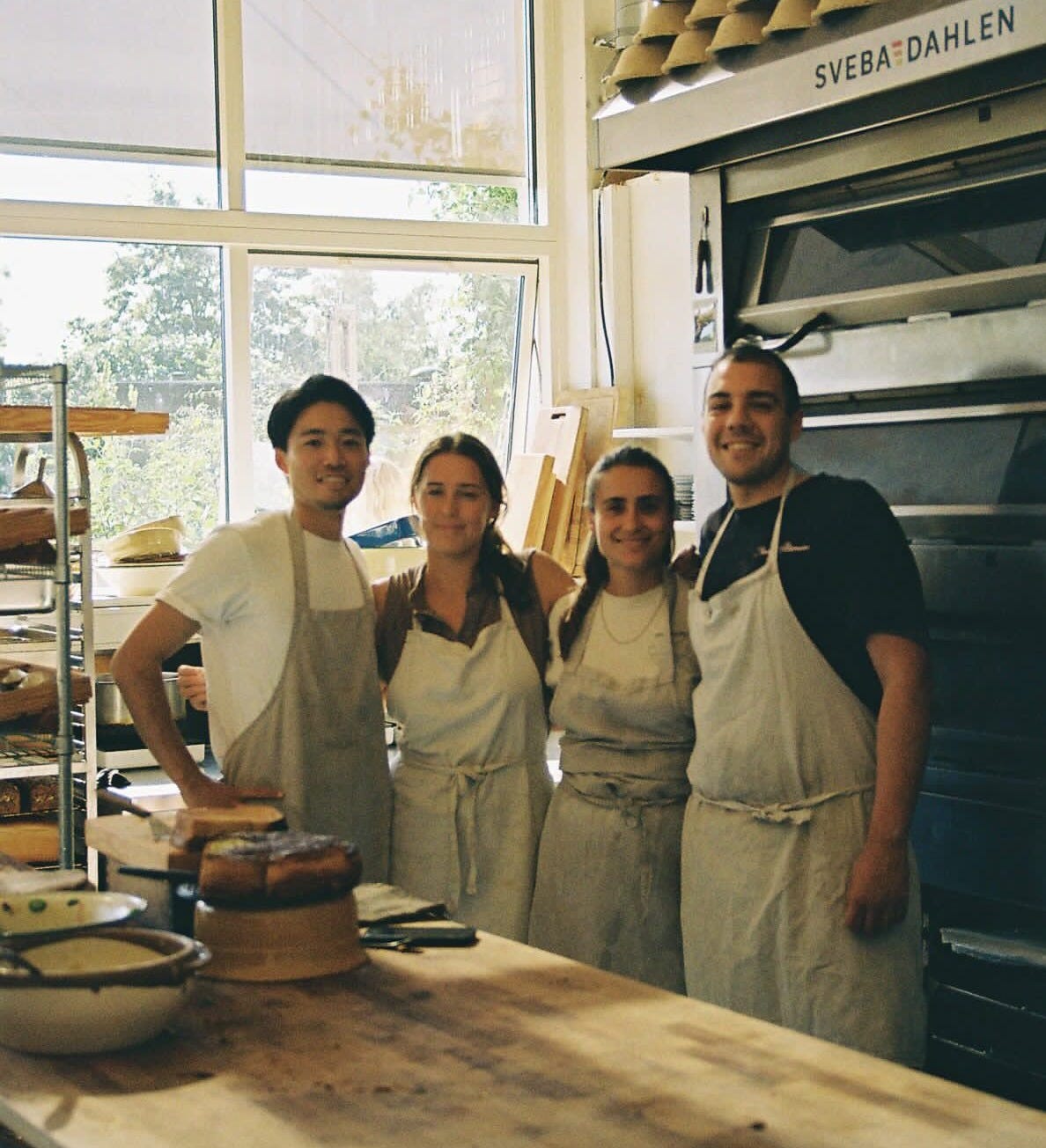
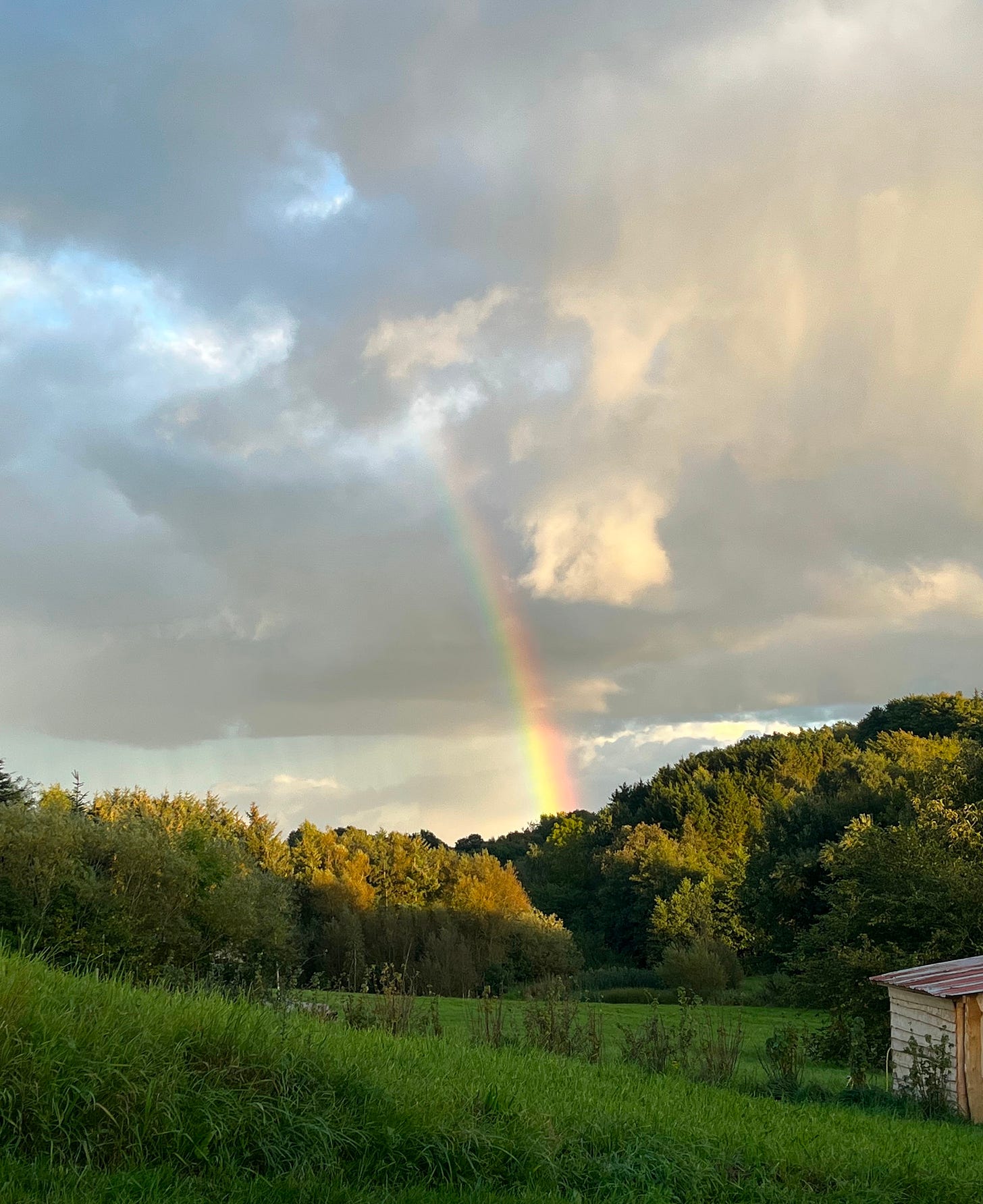
I definitely think about these things! If you're reading any books about food justice / farming practices, please share. I loved Dan Saladino's EATING TO EXTINCTION.
This was such a nice Friday morning read! I love hearing about the different farms and bakeries you work at and the things they focus on